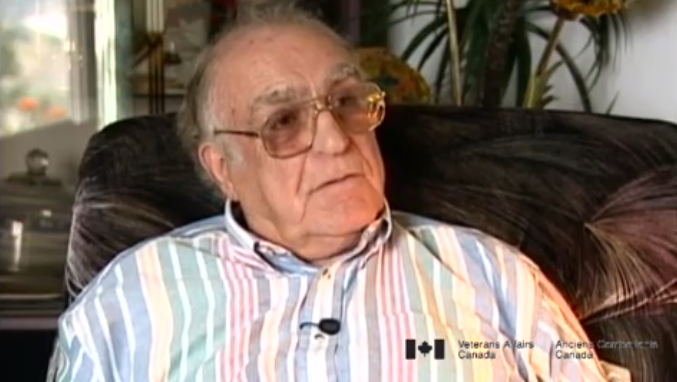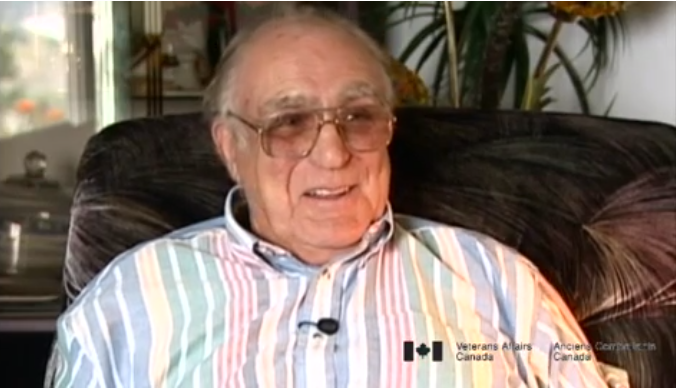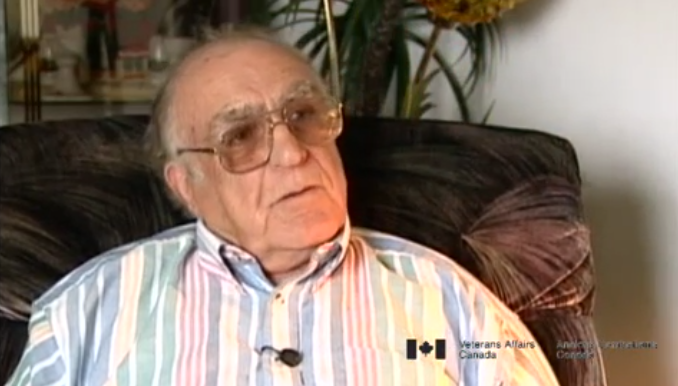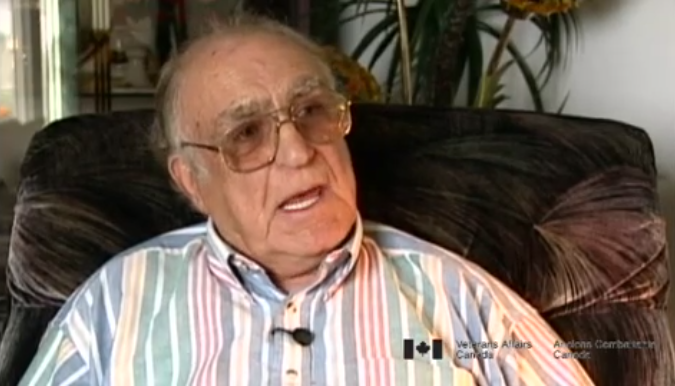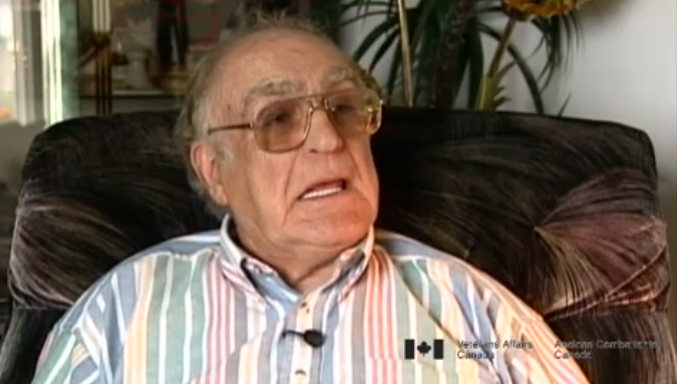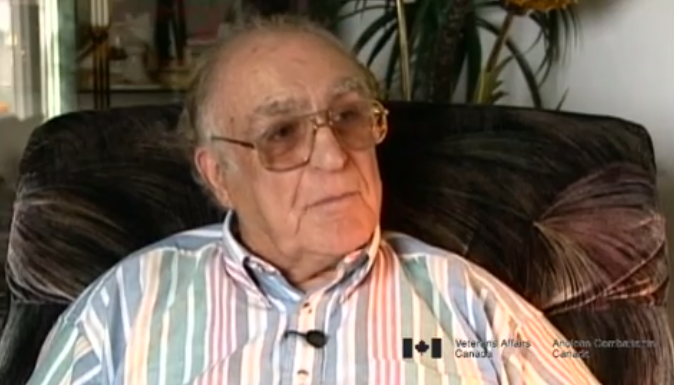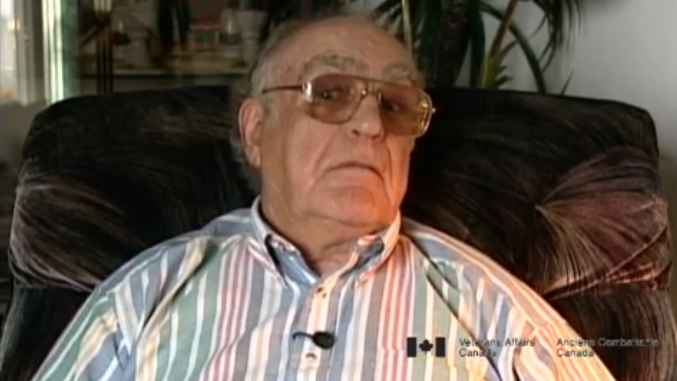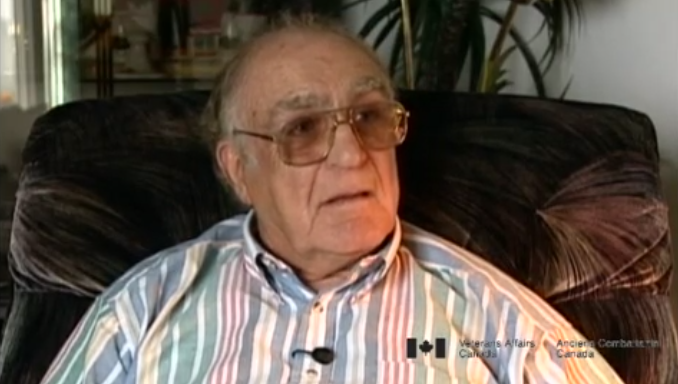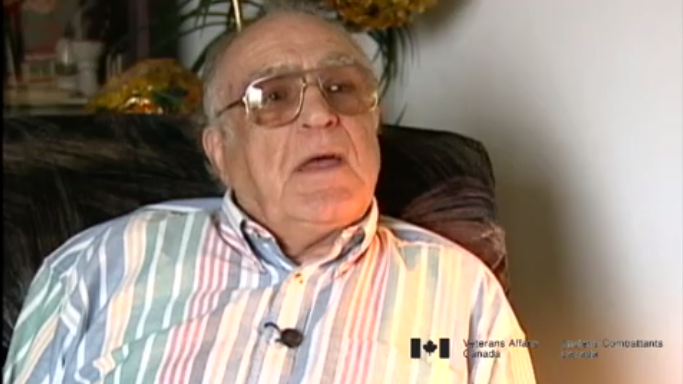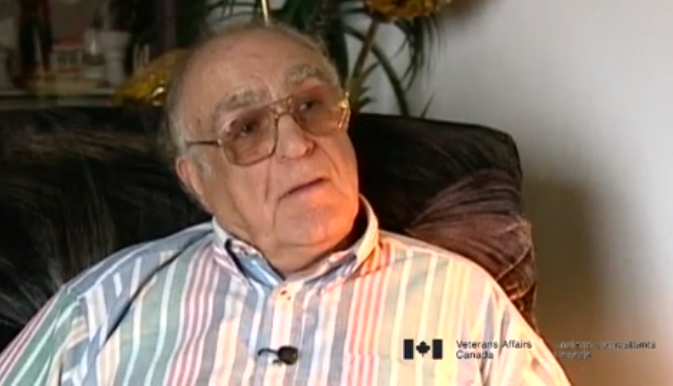Then they took us from there across to these old barracks we
had been in before the war, Sham Shui Po, and they put us to
work at Kai Tek Airport. In the meantime people were taking
electric feet, as they call them, from malnutrition and beriberi.
They were taking what they call electric feet. I’ve seen men,
big tough men, with their toes in their mouth, crying, crying
with the pain. Some of them, they’d go out and walk on
the cement because the cold seemed to stop the pain.
Then we took what they called Doby’s itch. It was in the
private parts. Oh my God, some of them suffered.
Again I missed that. I think probably because of my schooling,
coming out of the school and the needles I had, because
I missed that, but I kept getting thinner, and at last there
I weighed ninety-five pounds. In the meantime, from five foot,
I think it was six and a half or seven, I grew to six foot two.
So, one of my friends from the Richmond Leo Murphy, said,
"Bill, when you get back home, if you ever do,
you’ll never hang a coat on yourself,” because my shoulders
apparently were like that. But I was healthier than most of them.
They put me on as an orderly because I was more healthy.
The guys, they were getting up and they were spitting the white
mucus and that, just in cans, and we had to dump that out.
They were dying. They were just dying right and left.
They were just... I can still see the truck backing up and...
Now this was not only all Canadians, there was other troops,
British and that, but it was throwing three and four and five
a day into the back of the truck and taking them away.
Into our camp, the one I was in, my brother was at the far
end and I was at the other end, and at last him and I were
sleeping together. Everybody else was gone. They had been,
either died or had been taken away to this other ward where,
what we called the death ward, and he never took to that either,
but he took to electric feet. He suffered tremendously with that.
And I worked at the airport and they would give me two
cigarettes. He smoked, I did not smoke, but he smoked so
I’d bring him in the cigarettes and they’d give me sometimes
a little tangerine and I’d bring it in and I’d share it with him.
At the airport, we had some of the Japanese who were very tough.
There was one fellow especially, I don’t know his right name.
They called him the Kamloops Kid and for one day... I would
say probably they did not like tall people as much and here I am
growing taller, but we did have a lot of tall men. But one day,
for no reason at all, he made me hold a log over my head
and I’d held it over my head and I couldn’t hold it and when I
fell down, they had these sharpened bamboo sticks.
Apparently, they hardened them in coal and they became
just like iron and they’d pick you with that, and I fell down
and they picked me and up, I held it up again. At last I
passed out. Now this guy was from Kamloops, BC, and he
spoke perfect English. I think after the war, he was tried
into Hong Kong and hung, I think or something. But anyway
he was bad. I seen him one time kick a fellow by the name
of Murray, and Murray fell down and he just kicked him
again and left him there. He was dead, you know, one of
our boys. I don’t know where this Murray come from but he
was a Canadian. So we worked at that airport. We moved a
tremendous pile of ground. We had fellows getting killed,
the earth falling in on them, and dying inside with
diphtheria, dysentery, beatings, severe beatings.



